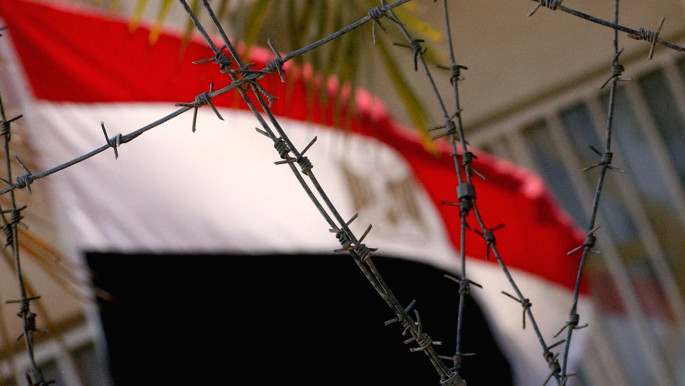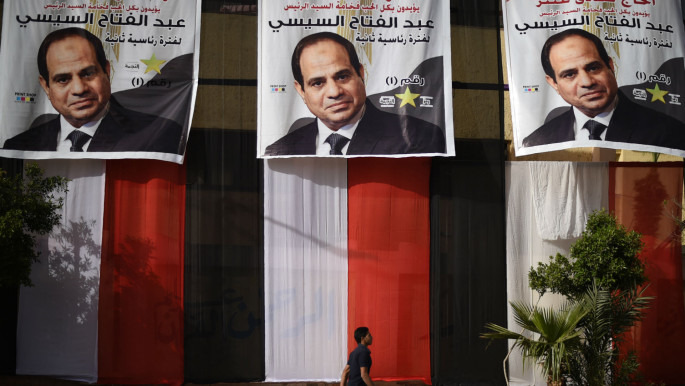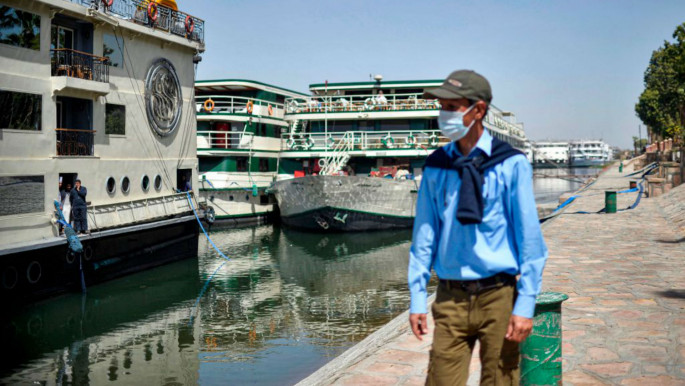Weaponised censorship: The final demise of free expression in Egypt's media
In what was described by free speech advocates as part of an ongoing assault on press freedom in Egypt, the Supreme Council for Media Regulation (SCMR) recently banned journalists and social media users from reporting on sensitive political and economics topics.
According to the regulator, print, online and TV media outlets, as well as social media platforms, will only be allowed to quote formal statements released by official bodies about the conflict in Libya, Sinai, the Grand Ethiopian Renaissance Dam (GERD) and the coronavirus pandemic.
Known for allegedly being controlled by the security authorities and the government, the council presents itself as an independent entity that monitors media performance in Egypt.
"Even though we all already know that local media outlets suffer setbacks for being followers of the regime, this decision has officially turned Egyptian journalists into public relations executives, only publishing official statements with no input on their parts," a senior Egyptian journalist told The New Arab, on condition of anonymity.
"If you talk about local media, there is almost none. Only social media users are trying to make some sense of what's going on in the country," he added, pessimistically.
 |
Media outlets and social media platforms will only be allowed to quote the official narrative on Covid-19, Ethiopia's Renaissance Dam and the conflicts in Libya and Sinai |  |
In a statement released on 16 June, the council deemed any challenge of its decision as "tampering with the nation's fate," warning that legal action would be taken against any violators.
"The country is going through a dangerous turn as well as grave challenges at a sensitive phase that has to do with national security…requiring all national powers to join forces," the statement read.
 |
|
| Read more: Egypt's relentless war on journalism persists amid pandemic |
Egypt has been subject to widespread criticism over the mismanagement of several crises, including the spread of Covid-19, the failure of negotiations on GERD with Ethiopia and losses incurred by its Libyan ally Khalifa Haftar in the country's ongoing conflict.
Naila Hamdy, associate professor of journalism at the American University in Cairo, is not surprised at the regulator's resolution.
"When it comes to Covid-19, for example, if the public doesn't get good information from the press, then they will turn to rumours, conspiracy theories and fake news. I think that in this case, there has been a lot of bad coverage [causing] fear…and panic," she told The New Arab.
However, Egyptian lawyer Fahd El-Banna argues that the decision is "illegal."
"The law dictates that during wartime, no news is allowed. This applies to the state declaring a real war. The president hasn't so far announced any armed fight between Egypt and another country," Banna told The New Arab.
 |
This decision has officially turned Egyptian journalists into public relations executives |  |
"The Egyptian people have been under the impression that there has been a war on terror in Sinai since 2013. But the wording here is legally inaccurate. Egyptian police and army forces have been combating terrorism not engaging in a war per se," added Banna, who has frequently volunteered to defend journalists facing charges.
The statement explicitly indicates that only the official versions of the stories in question will be available for the Egyptian people, eager for news, with no place for real reporting or analysis.
"Journalists as people whose profession has negatively been influenced by this call have the right to contest it before the state council," Banna argued.
 |
|
| Read more: Disaster looms for Egypt's political prisoners as coronavirus fears mount |
"During the times of crises, if the media is absent, then the awareness of Egyptian citizens will be absent as well," he added.
Sahar Khamis, associate professor at the communication department of US-based Maryland University, believes that the crackdown on journalists has recently "exacerbated and escalated" in Egypt, especially pertaining to the current pandemic.
"[This happened] for a number of reasons; the most important of which…is the government's desire to control narratives…and if there are attempts to counter these official narratives, obviously, there will be harsh consequences," Khamis told The New Arab.
 |
Over 500 local and international online media outlets and websites are blocked in Egypt |  |
Egypt has been described by the Committee to Protect Journalists as one of the worst jailers of journalists globally, while Reporters Without Borders ranked it 166 out of 180 countries in its 2020 World Press Freedom Index.
In recent years, Egypt has adopted a legal framework hampering media freedom in the country. Around 60 journalists are currently behind bars, whether serving time or pending trial. Among them are over a dozen detained after reporting on the status of Covid-19 in Egypt.
 |
|
| Read more: As coronavirus spreads in Egypt, Sisi puts the truth on lockdown |
The media council's decision stirred an outcry on social media as well. Former politician and writer Mohamed El-Fiki tweeted: "Unfortunately Egypt is in danger; and they want to hide [their] failure."
Foreign policy advisor and lawyer Mohamed Refaat wrote on Twitter: "This regime reached the utmost of craziness nobody else reached. A catastrophe worse than the 1967 [war with Israel] is expected in Egypt," he added.
Over 500 local and international online media outlets and websites of international and local organisations have been blocked in Egypt, including The New Arab.
Egypt had earlier tightened control on broadcasters and foreign channels known for criticising the regime after the military coup that overthrew former President Mohammed Morsi in 2013.
Nevertheless, Hamdy still believes there might be light at the end of the tunnel.
"I wish these rules are temporary. I don't think the [decision] will kill independent media…Egypt has always had its ups and downs when it comes to press freedom," Hamdy said.
"Since the days of the Ottoman Empire…There has never been a time when there was no independent journalism…There have always been different opinions."
Join the conversation: @The_NewArab





 Follow the Middle East's top stories in English at The New Arab on Google News
Follow the Middle East's top stories in English at The New Arab on Google News


